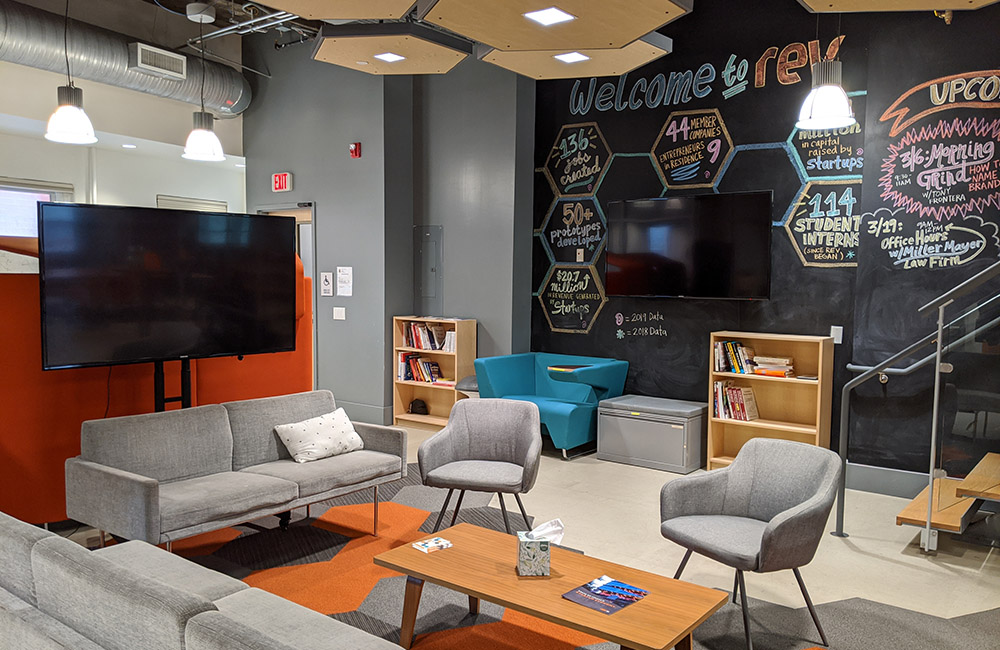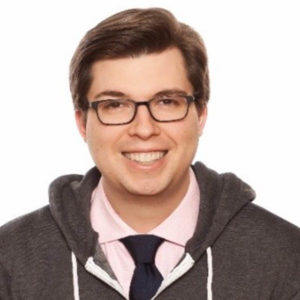
New Entrepreneur in Residence: Gregory Ray
Gregory Ray is the most recent Entrepreneur in Residence to join Rev: Ithaca Startup Works. In addition to advising startups at Rev, Ray is also an instructor at the SC Johnson Graduate School of Management at Cornell University and a program lead and Entrepreneur in Residence at Cornell’s Center for Regional Economic Advancement.


Previously, Greg served in a number of roles for Creative Destruction Lab (CDL), a program for early-stage technology-based companies. During his time at CDL, Ray worked on expansion, pedagogy, operations, recruiting, and partnerships while based out of Toronto, New York City, and Atlanta. The cumulative equity value of CDL’s participant companies increased by more than $6B CAD during Greg’s tenure.
Before CDL, Greg served as project manager for the launch of a private hospital in Kuwait and worked on strategy for a Dubai-based agriculture startup. He holds a BA from Hamilton College, an MBA from the University of Toronto, and a Ph.D. from Cornell University.
Ray recently sat down with us to discuss his entrepreneurship experience and his new role as a Rev Entrepreneur in Residence:
What do you hope to bring to Rev as an Entrepreneur in Residence?
I hope to bring a unique perspective to the team that is informed by my experiences in the life sciences, healthcare, and in supporting early-stage founders. In particular, I am keen to help founders identify how they may position themselves for the next step in their entrepreneurial journey, whether it be in finding capital, pilots, advisors, and customers, or in identifying value capture strategies that will help them set priorities as their businesses begin to grow.
What is your biggest piece of advice for entrepreneurs launching startups?
I think many founders believe that they are expected to always have all the answers about their businesses, but this is not true. While founders do certainly need some expertise to build their businesses, my experience suggests that strong founders use their expertise to develop and articulate testable hypotheses. As they grow their businesses and learn more, they refine their hypotheses and get stronger. To this end, I think founders should constantly be asking themselves what they will learn or have learned from every interaction they experience and then use these lessons to update and improve their business hypotheses.
What is your proudest accomplishment in your career?
I am proud of quite a bit, but a recent accomplishment that stands out involved leading the program for COVID response at CDL. The program, CDL Recovery, integrated entrepreneurship programs at eight universities (including Georgia Tech, University of Oxford, and University of Toronto) to provide mentorship and access to capital for startups looking to mitigate the impact of the pandemic. Participating companies collectively raised tens of millions of dollars in funding and made meaningful progress toward impact. In parallel to this, I also built an overlapping program that allowed business students from five of the eight universities to embed in these companies and see the struggles of scaling a business first-hand.
How do you enjoy spending your free time?
Before the pandemic, I would have said travel was my free time passion. I have been fortunate to get to see much of the world personally, academically, and professionally, and I relish what I have learned through these experiences. However, the pandemic has allowed me to reflect more and realize that my real passion is connecting with others, near and far, around shared passions, hopes, and dreams for our world. To that end, I like spending my time talking to smart people, learning about their ideas, and finding a common connection in their possibility.
